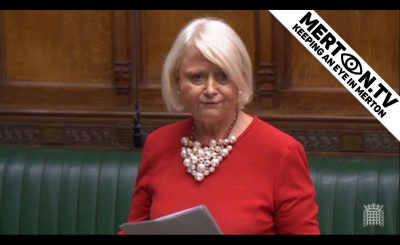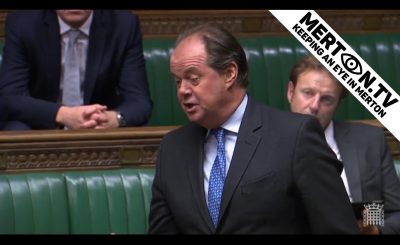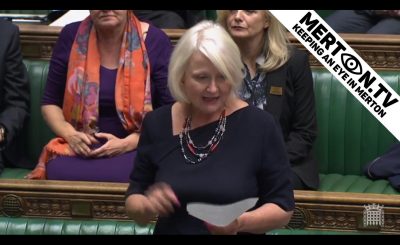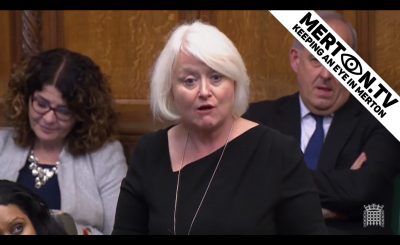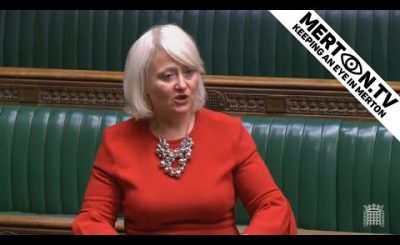| Topical Questions
Mr Clive Betts (Sheffield South East) (Lab)
T1. If he will make a statement on his departmental responsibilities.
The Secretary of State for Health and Social Care (Matt Hancock)
Last week we launched the NHS long-term plan, which delivers on the vision for how the extra £20.5 billion that we are putting into the health service will be spent to get the best return for the taxpayer. The long-term plan is built on the principle that prevention is better than cure, and there will be a new focus on personal responsibility that reflects and complements the responsibility that the NHS has to us all.
Mr Betts
Looking to the last financial year, I am sure that the Secretary of State has seen a National Audit Office report that says that auditors gave a qualified opinion on 38% of local NHS bodies, expressing concerns about overspending and value for money. The Comptroller and Auditor General said:
“A qualification is a judgment that something is seriously wrong”.
Does the Secretary of State accept that many of these problems are down to local bodies struggling with the effects of austerity and real-terms cuts to their funding? Does he also accept that he is ultimately responsible for spending in the NHS, and does he accept responsibility for the totally unsatisfactory state of affairs that the NAO has identified?
Matt Hancock
That is a very big question, and the very big answer comes in the form of the £20.5 billion that is going in, but it is not just about the money. We also need to ensure that, at all levels, we strengthen the leadership capacity in the NHS, because the best hospitals that deliver the best services, that hit their targets and that are the best clinically are also the ones that have the best financial results. Strengthening leadership, making sure that the money is available, as appropriate, and ensuring that we deliver for patients are at the core of the long-term plan.
Mr Robert Goodwill (Scarborough and Whitby) (Con)
T4. Before Christmas we had the brilliant news that £40 million of capital funding has been allocated for a new state-of-the-art A&E facility at Scarborough Hospital, which will transform emergency care for my constituents. Can the Minister update me on similar ambitious plans for Whitby Hospital?
The Minister for Health (Stephen Hammond)
My right hon. Friend is right to welcome the announcement for Scarborough Hospital, and I understand that the full business case for the redevelopment of Whitby Hospital is going through the Hambleton, Richmondshire and Whitby governing body for approval on 24 January. I am assured that the clinical commissioning group remains supportive of the redevelopment of Whitby Hospital and, if it is helpful, I would obviously be delighted to meet him after 24 January.
Barbara Keeley (Worsley and Eccles South) (Lab)
This Government’s cuts to council budgets have meant that 100,000 fewer people received publicly funded social care over the past three years, and 90 people a day died while waiting for social care last year. What does the Secretary of State think it says to their families that the social care Green Paper and the meaningful funding settlement have been delayed again?
The Minister for Care (Caroline Dinenage)
The hon. Lady knows that we have given councils access to nearly £10 billion over a three-year period to address this very issue, but she is right to highlight the issues at the heart of social care. We will be publishing the Green Paper very shortly.
Andrew Lewer (Northampton South) (Con)
T8. Perhaps the worst private finance initiative contract in the country was awarded in 2001 to Shaw Healthcare for the rehabilitation of elderly people coming out of hospital. Northamptonshire County Council has been paying Shaw for a service in which more than 50% of beds have been lying empty. What steps can the Department take to manage the problems that have arisen from this and other PFI contracts?
Stephen Hammond
Departmental officials have worked alongside the council to engage with Shaw Healthcare to identify the causes and explore the solutions to minimise the number of empty beds under the PFI. Through improved contract management and regular meetings with Shaw, significant improvements are being made, and contract changes are under discussion to further improve performance. This aligns with the Department’s best practice centre for PFI contracts, as the Chancellor announced in the Budget—
Mr Speaker
Order. I appreciate the natural courtesy of the Minister in looking in the direction of the person questioning him, but the House wants the benefit of his mellifluous tones, so he should face the House. We are grateful to him.
Helen Goodman (Bishop Auckland) (Lab)
T2. The closure of ward 6 at Bishop Auckland Hospital will mean the loss of 24 beds, which is why 14,000 people have signed a petition to keep it. Will the Minister now step in to ensure that we keep ward 6?
Stephen Hammond
The hon. Lady will know that in the long-term plan we have committed to ensuring that more people are treated and that more money is spent in hospitals. The decision on closure is for local organisations, as she will know, but, as I have said to other hon. Members, my door remains open and I would be delighted to meet her.
Gordon Henderson (Sittingbourne and Sheppey) (Con)
T9. As we heard earlier, obesity is a major health problem in Britain. Nationally, 1,100 people per 100,000 are admitted to hospital because of obesity-related problems. This is a particular problem in Sittingbourne and Sheppey, where 1,700 people per 100,000 are affected. That is the highest rate in the whole of Kent and Medway. Does the Minister recognise the huge strain that such a statistic puts on the budget of the Swale clinical commissioning group, and, if so, what steps will he take to provide the funds needed to solve the problem?
The Parliamentary Under-Secretary of State for Health and Social Care (Steve Brine)
Yes, of course we recognise the economic strain that obesity puts on the NHS, which is why we are taking the action we are, including with our renewed focus on prevention. The measures in the plan include doubling the capacity of the diabetes prevention programme and the further 1,000 children a year we hope to treat for severe complications relating to their obesity. That should help my hon. Friend’s CCG, as well as mine and those of all Members.
Mohammad Yasin (Bedford) (Lab)
T3. A senior Bedford GP was told by the East of England Ambulance Service that a patient who required urgent admission would have to wait 10 hours for an ambulance. I am deeply concerned about this response time. Will the Minister urgently investigate why patients are being deliberately downgraded when an ambulance is called from a GP surgery?
Stephen Hammond
A number of MPs, including the hon. Gentleman, have raised issues about the trust’s performance, and a range of actions have been put in place. He will be pleased to know that I met the performance director in December. I have been discussing several support mechanisms involving both the NHS and the Department, and I continue to receive reports. He will also be pleased to hear that the trust’s performance improved over December.
Maria Caulfield (Lewes) (Con)
Children’s hospices provide vital support for children with life-limiting conditions and their families at the most difficult of times. I welcome the £25 million of extra investment in these services, but what more can be done to support children’s hospices across the UK?
Caroline Dinenage
My hon. Friend is absolutely right to highlight the incredible work of children’s hospices across the country. Up until now, there has been a disparity between their funding and that of their adult counterparts, which is why I was delighted when, as part of the NHS long-term plan, we announced plans to increase funding for children’s hospices by as much as £25 million a year over the next five years. We can always do more, however, and we are always open to suggestions.
Yvonne Fovargue (Makerfield) (Lab)
T5. I have recently been contacted by constituents who have faced long waits in A&E at Wigan Infirmary. Figures show that one in four patients have waited longer than four hours. Can the Minister explain how removing waiting time targets will improve the situation?
Matt Hancock
The hon. Lady is absolutely right that these waiting time targets need to be improved upon, which is one reason why we are putting so much extra taxpayers’ money into the NHS. Of course, waiting times also need to follow clinical need, and we are taking advice on that.
Alan Mak (Havant) (Con)
Genome sequencing and other fourth industrial revolution techniques play a key role in the detection and treatment of cancer and other diseases. How is the NHS adopting those new techniques?
Matt Hancock
The use of new technologies is drilled through the new NHS long-term plan. Genome sequencing holds great opportunities to improve the health of the nation, and my hon. Friend is a great advocate for it.
Vernon Coaker (Gedling) (Lab)
T6. As I have seen recently in my own constituency, access to mental health services is sometimes deplorable. Notwithstanding what the Under-Secretary of State for Health and Social Care, the hon. Member for Thurrock (Jackie Doyle-Price), said earlier about all the plans, how long will people have to wait before those services actually get better?
Matt Hancock
The biggest proportional increase in spending in the NHS—it has taken place faster than the average rate, over a five-year period—is in mental health services, alongside the increase in primary care and community care. That money will come on stream with a £6 billion cash injection for the NHS overall in April, in just over two months’ time. So we are getting on with it, but there is a lot of work to be done.
Julia Lopez (Hornchurch and Upminster) (Con)
NHS Property realised £43 million when it sold St George’s Hospital in my constituency, yet a £17 million bid for a new health centre there has not been successful. Will my right hon. Friend commit himself to looking at that again in order to convince communities that they benefit when local NHS assets are sold?
Matt Hancock
Absolutely. I look forward to working on that with my hon. Friend and local commissioners, and also to working with my hon. Friend before the spending review, when the next round of the capital allocations will be set.
Ms Marie Rimmer (St Helens South and Whiston) (Lab)
T7. In line with the long-term plan, leaders in St Helens have integrated health and social care teams and budgets, and there is a joint role for an accountable officer and director of social services. Can the Secretary of State assure me that that successful place working will not be put at risk by restructuring in NHS England and NHS Improvement, and indications in the long-term plan that integrated care systems need to be formed on sustainability and transformation plan footprints?
Matt Hancock
Yes, 100%. That is exactly what is in the plan, and I am delighted to have such support. This is precisely the direction in which we need to go in integrating care to ensure that patients are served better, whoever is the ultimate funder of the service.
Tracey Crouch (Chatham and Aylesford) (Con)
In the event of an out-of-hospital cardiac arrest, access to a defibrillator can make the difference between life and death. Although there are tens of thousands of defibs across the United Kingdom, the majority are not known to the ambulance service, so will the Minister join me in welcoming the British Heart Foundation’s efforts to map the location of all defibs so that ambulance services can direct people to their nearest heart restarter in an emergency and, hopefully, we can save more lives?
Steve Brine
Yes, I will. We work closely with partners such as the BHF to harness new technology. Ultimately, this is about using data—big data—to ensure that patients benefit, and that is at the heart of the health service.
Chris Ruane (Vale of Clwyd) (Lab)
T10. We have an excellent advocate for those with motor neurone disease in north Wales, one Vincent Ryan. He has drawn my attention to the fact that the social care Green Paper was expected before the new year, but the Health Secretary has now said that it will be published before April, more than two years after it was first announced. Can the Secretary of State confirm that, whenever the Green Paper does arrive, it will address social care provision for adults of working age living with a disability as well as older people?
Matt Hancock
Yes. The hon. Gentleman is right: that is absolutely critical.
Mrs Pauline Latham (Mid Derbyshire) (Con)
What advice can the Minister give to elderly and vulnerable people who missed out on the first wave of flu jabs? Are they still available?
Steve Brine
Yes, they are still very much available. People should make an appointment through their GP or their wonderful pharmacist.
Dr Rosena Allin-Khan (Tooting) (Lab)
While working a night shift in A&E this weekend, I was struck by the fact that I was working alongside so many members of staff from our EU—Italian, Irish and Spanish. I am proud that St George’s Hospital is paying for the visas of those vital staff post Brexit, but can the Secretary of State tell me why the financial burden of retaining them and improving their morale is falling on NHS trusts and not the Government?
Matt Hancock
I welcome what St George’s is doing, and I welcome all the people from the EU who are working in our NHS—in greater numbers than on the day of the referendum. They are welcome here, and I look forward to their working here long into the future.
Andrea Jenkyns (Morley and Outwood) (Con)
Each month I hold my memory cafés for those suffering with memory loss, dementia and Alzheimer’s, and their carers, families and friends. What support are the Government providing for those suffering with such memory loss conditions?
Caroline Dinenage
We remain absolutely committed to delivering the challenge under dementia 2020 and to making England the best country in the world for dementia care by 2020. As part of that, we are more than happy to do everything we can to support steps such as the memory cafés of which my hon. Friend speaks, which are such a valuable local community resource.
Mr Speaker
Order. I was going to call Mr Skinner, who I thought was perched a moment ago.
Mr Dennis Skinner (Bolsover) (Lab)
rose—
Mr Speaker
He is perched again; in fact he is more than perched.
Mr Skinner
The Secretary of State has been very fond today of talking about the long-term plan. I am 86 years of age, and the reason I am able to ask this question is because under Labour—is he listening?—the money that went in was trebled from £33 billion to £100 billion, an increase of £67 billion. That is why I am still here: I had my operation for cancer, and it was successful; I had an operation for a bypass, and it was successful; and I had a hip replacement, and I can still walk backwards. That is the Labour story—just remember it!
Matt Hancock
rose—
Mr Speaker
Order. Before the Secretary of State responds, let me say that the ferocity and eloquence of the hon. Member for Bolsover (Mr Skinner) are legendary, but all he is really telling us is what the Chair already knew, namely that the hon. Gentleman is indestructible.
Matt Hancock
The hon. Member for Bolsover (Mr Skinner) and I both come from Nottinghamshire mining stock, and we both support the NHS, which was first proposed from this Dispatch Box by a Conservative Minister under a Conservative Prime Minister, and has been presided over by a Conservative Secretary of State for most of its life. I am delighted that those operations, including under a Conservative-led Administration, kept the hon. Gentleman ticking, because what an adornment he is—I look forward to voting with him this evening.
Mr Speaker
Order. As I am often moved to observe at Health questions, demand tends to exceed supply, as in the health service under whichever Government, but we must now move on. |


